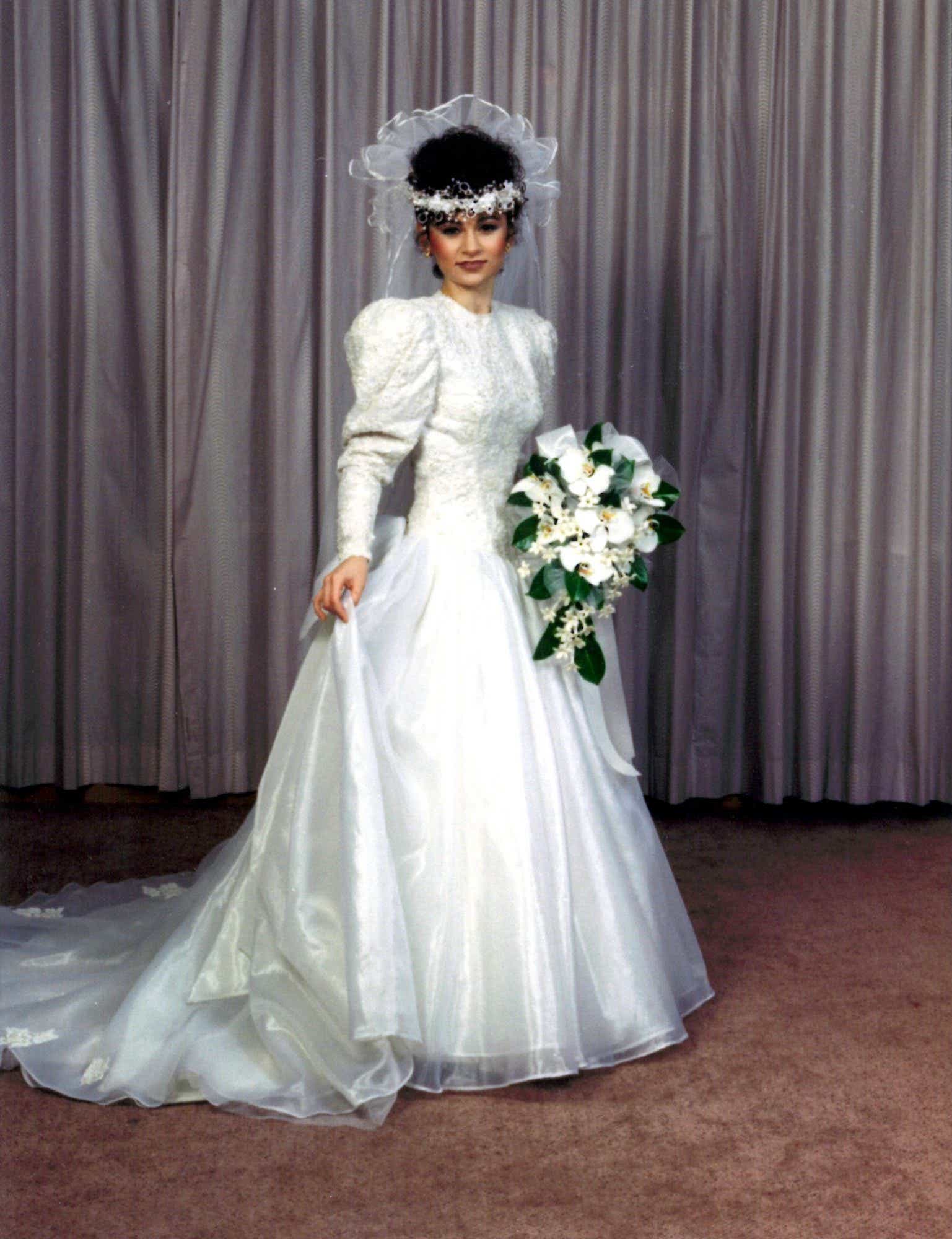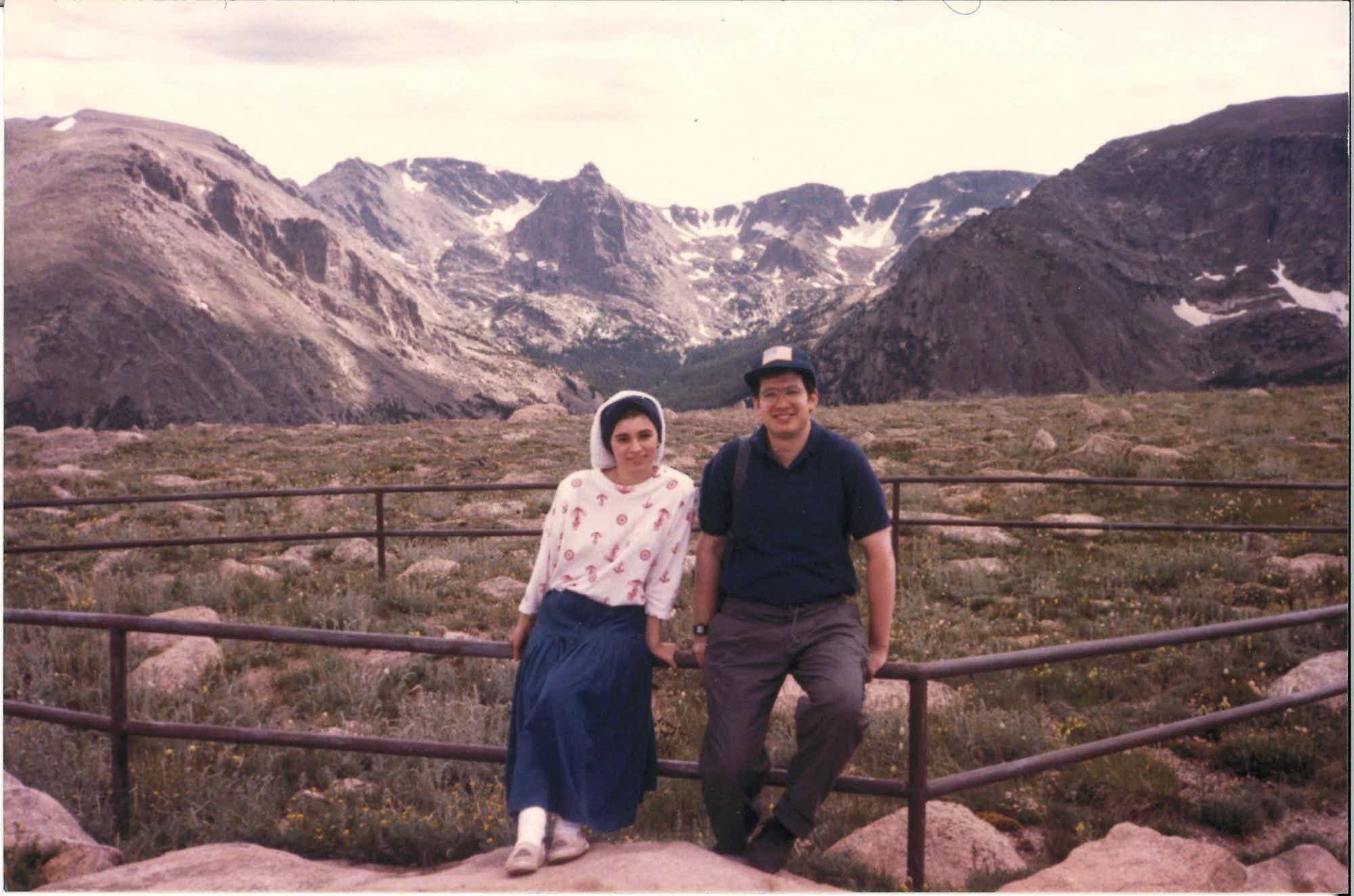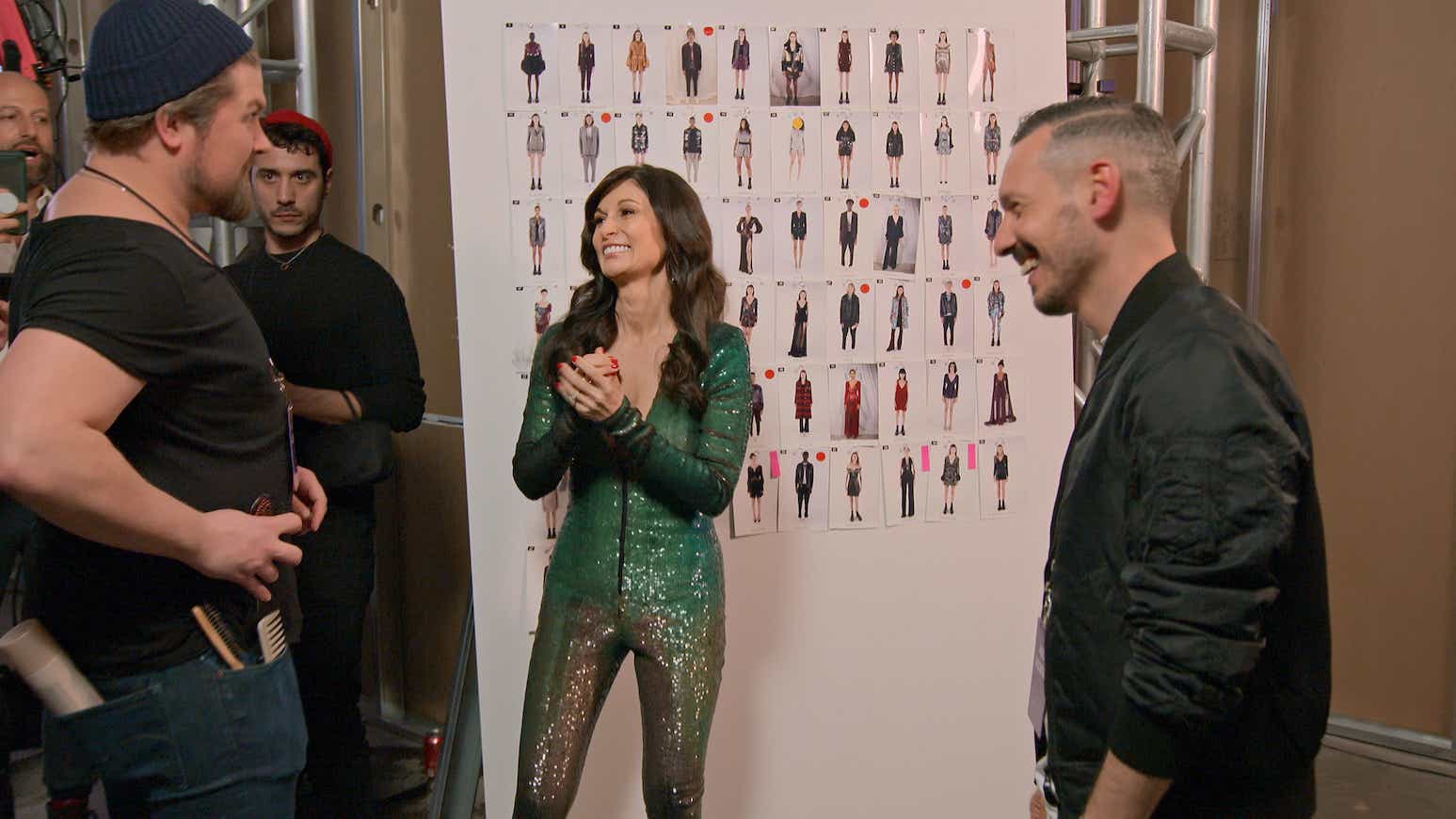Julia Haart is proof that it’s never too late to change the course of your fate. When she was in her 40s, she made a risky, life-altering decision: she was going to escape Yeshivishe Heimishe, the ultra-Orthodox Jewish sect based in Monsey, New York in which she’d lived all of her life, or die trying. Because suicide is so taboo in the community, Haart decided to starve herself to death — if she died from an eating disorder, she thought, perhaps her children wouldn’t be punished for her sins. Ultimately, it was Haart’s children who saved her. Weighing just 73 pounds, Haart watched her daughter Miriam, who was 13 at the time, being groomed for a life of marriage and servitude. “I saw them doing to my daughter what they had done to me, and I realized that this was not just my misery,” she tells Katie Couric Media.
At age 43, after years of careful planning, Haart finally made her escape. Just months after leaving, she founded her own shoe company, which was later bought by the major fashion company La Perla. Now, Haart is CEO and co-owner of the talent media conglomerate Elite World Group, and author of the upcoming book Brazen: My Unorthodox Journey from Long Sleeves to Lingerie. When asked how she garnered so much success with so few connections and in such a short period of time, Haart replied, “For me, it wasn’t success or failure, it was success or going back. And going back meant death. Those were the odds.” We spoke with Haart, who now stars in a new Netflix reality series about her family and business, called My Unorthodox Life, about her “escape” from Monsey, her transition into the fashion world, and her relationship with her ex-husband from the community.
You lived in what you call a “fundamentalist community” for your entire life. What was the breaking point that made you decide to leave?
It took about eight years between starting to think about leaving and actually walking out the door. First, I had to give myself permission to acknowledge that I was unhappy. That took me 35 years. Even though I’d been so miserable, I thought that something was horribly wrong with me. I thought that I was the problem. Everyone around me seemed so happy having children and taking care of their families, and they seemed to think their lives were so full of meaning, while I hated every day of my existence. It took me 35 years to have the courage to say, “wait a minute, maybe it’s not me. Maybe something’s wrong with this world.” That was a big step, because like in any fundamentalist community, it’s your word against God. When you disagree with the community, you’re not just defying a person, you’re defying the greatest being of all time. So it’s not a very fair fight.

Then I needed to educate myself: I became a massively voracious reader because I knew nothing about the outside world. I also started to watch TV and movies- that’s when I saw Sex and the City for the first time. It took years and years to plan my escape. I had no education and no way to support myself, but I started selling life insurance and annuities without my husband knowing, and I slowly started building my escape fund.
The last part was actually walking out the door. That decision came down to my daughter Miriam, who was 13 at the time. Even after all of my planning, I just didn’t have the courage to leave. I was too afraid, so I planned to kill myself. But when I saw them doing to my daughter what they had done to me, I realized that this was not just my misery. Did I really want my brilliant daughters to be groomed to be housewives and mothers and never have the opportunity to be anything else? I love being a mother, but no man should tell you that that is the only purpose of your existence. Miriam is 20 now, and she is bisexual. If we had stayed in Monsey, she would be married and probably pregnant with a baby by now. Instead, she’s at Stanford University, and she’s able to explore her own identity. Maybe she’ll go on to cure a disease or invent something that will make the world a better place. She wouldn’t have had those opportunities had I stayed.
When you lived in Monsey, you needed to be covered up at all times, including wearing a wig. How did you feel when you first took those clothes off?
It happened in pieces. When I walked out, I was still fully covered and I did not take off my wig. I was so indoctrinated that it took me over a year after I left before I put on my first pair of pants. I was in Italy, and I was in the middle of producing my first collection for my shoe company, but I was still so brainwashed. One day I was walking down the street in Milan, and I saw this woman wearing the most beautiful pair of black leather leggings I had ever seen. I stopped where I was going and literally started following her down the street. Finally, I got up the courage to tap her on the shoulder and say, “I love your leggings!” Luckily she was kind enough to respond and not run away from me since I had kind of been stalking her, and she told me they were Saint Laurent. So I googled it, and there was a store nearby. I walked into the store, and I bought my first pair of pants.
I hid them away and brought them back to the hotel, and I stared at those leggings for three days, because I was so scared to put them on my body. When I finally mustered up the courage to put them on, before I walked out the door of my hotel room, I called my kids to say goodbye. Because I was absolutely certain that since I had put those pants on, God was going to make sure that I either get run over by a car or a building would collapse on me, or something. But if I was going to get killed, I was going to do it in a pair of black leather pants.
I still have those pants. They have a very special place in my closet. I will never ever give them away. They are my symbol of freedom.
Why did you decide you wanted to get into fashion after you left Monsey?
I have loved fashion ever since I was a little girl. I taught myself how to sew when I was 16 or 17, and I started hiding fashion magazines in places that I knew my father and husband wouldn’t find them.
After I left the community, I took a trip to India where I saw one of the world’s oldest cave drawings. It answered a question of mine as to why I was so drawn to fashion. These cave dwellers had very few tools, and their main motive was to survive, and yet they beautified their walls. They expressed who they were through art. And that’s what fashion is to me: It’s art. It’s self-expression. I think people can be creative in a thousand different ways, but fashion is what’s in my heart.
In terms of building my company, it was just a massive string of miracles. I was so driven and so focused and so determined because I felt like I had lost 43 years of my life, so I didn’t have 43 seconds to lose. My work ethic is ridiculous. I am not a big sleeper, and I work crazy hours because this is my mission. For me, it wasn’t success or failure, it was success or going back. And going back meant death. Those were the odds.
You are now remarried, but you have four children with your ex-husband from Yeshivishe Heimshe. Do you still keep in touch with him?

He has actually also recently left Monsey. He’s still very religious, but he decided to leave behind the fundamentalist community as well. Last week he called me up and said, “Julia, I like my life so much better now. Thank you.” That was huge for us. It’s like he’s a different person now. I’ve realized that my issue was never with him — it was with fundamentalism. He was taught that he was supposed to police me, and to rebuke me. The fact that he was constantly telling me not to talk, to cover my knees, to do his bidding, that wasn’t really who he is, it’s what he was indoctrinated to do. There are no villains in my world. I don’t think anyone is purposely trying to hurt people. I just think that as long as fundamentalism exists, women will continue to suffer. It needs to end now.









